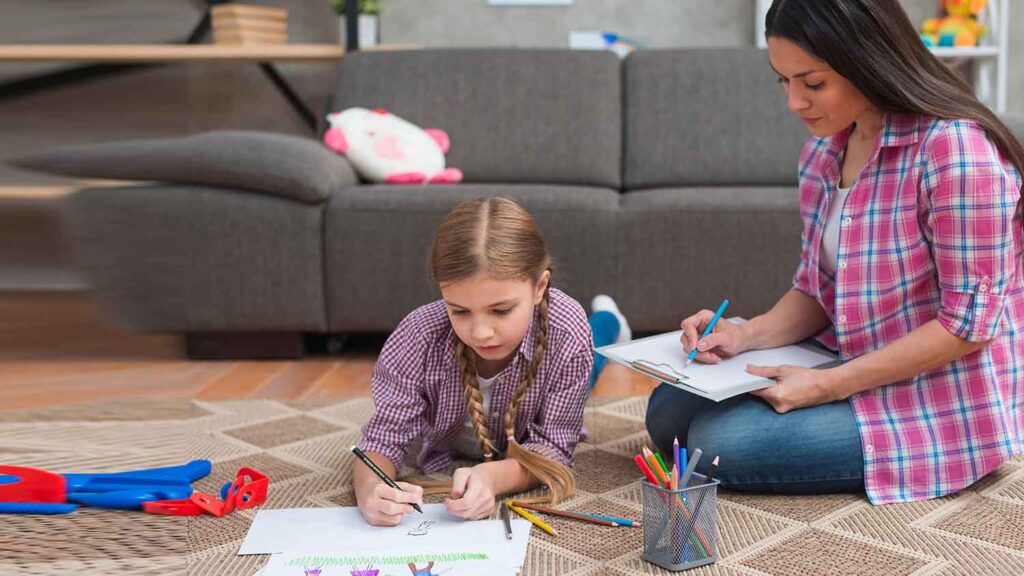Table of Contents
Preparing your child for kindergarten is a significant milestone, both for the child and for you as a parent. It marks the beginning of formal education and sets the stage for your child’s academic and social development. In this guide, we’ll explore practical steps to help your child feel confident and ready for their kindergarten experience. The article is exploring how to prepare your child for kindergarten.
Understanding Kindergarten Readiness
Kindergarten readiness involves more than just academic skills. It encompasses emotional, social, and physical development as well. To ensure your child is fully prepared, it’s essential to focus on these areas.
1. Establish a Routine
Children thrive on routine. Begin by establishing a daily schedule that includes consistent times for waking up, meals, play, and bedtime. This helps your child adjust to the structure they will experience in kindergarten. A predictable routine also fosters a sense of security, which is crucial as they face new experiences.
2. Encourage Independence
One of the key aspects of kindergarten is the ability to perform tasks independently. Encourage your child to practice simple tasks like dressing themselves, using the bathroom, and tidying up toys. These skills boost their confidence and reduce anxiety about starting school.
3. Develop Social Skills
Social interactions are a big part of the kindergarten experience. Arrange playdates or group activities where your child can interact with other children. Teach them to share, take turns, and express their feelings appropriately. These experiences will help them navigate the social environment of a classroom.
4. Focus on Early Literacy

Reading is a foundational skill for learning. Start by reading to your child daily and discussing the stories. Encourage them to recognize letters, numbers, and basic words. Introduce them to the alphabet and phonics through fun, engaging activities. These early literacy skills will give them a head start in kindergarten.
5. Introduce Basic Math Concepts
Basic math skills are also important for kindergarten readiness. Teach your child to count, recognize numbers, and understand simple concepts like more or less. You can use everyday activities, such as counting toys or snacks, to make learning math fun and relevant.
6. Familiarize Your Child with the School Environment
If possible, visit the school with your child before the first day. Show them where they will be spending their time, including the classroom, playground, and cafeteria. Meeting the teacher and exploring the school grounds can make the new environment feel less intimidating.
7. Address Separation Anxiety
It’s natural for children to experience separation anxiety when starting school. To ease this transition, gradually increase the time your child spends away from you. Encourage them to talk about their feelings, and reassure them that it’s okay to miss you while at school. Over time, they will build the confidence to handle longer separations.
8. Promote a Positive Attitude Toward Learning
Your attitude toward school and learning will influence your child’s perspective. Speak positively about kindergarten and emphasize the fun and exciting aspects of going to school. Encourage curiosity and praise their efforts in learning new things. A positive outlook will help your child approach kindergarten with enthusiasm.
9. Prepare for the First Day of School
The first day of kindergarten can be overwhelming. To make it smoother, prepare everything the night before, including your child’s backpack, lunch, and outfit. Talk to your child about how to prepare for kindergarten and reassure them that it’s normal to feel nervous. A smooth first day can set the tone for the rest of the school year.
10. Maintain Open Communication with Teachers
Building a strong relationship with your child’s teacher is essential. Regular communication allows you to stay informed about your child’s progress and address any concerns early on. Being involved in your child’s education helps ensure they have a successful kindergarten experience.
Additional Tips for Parents
Stay Involved:
Your involvement in your child’s education doesn’t end with kindergarten preparation. Continue to support their learning journey by staying engaged with their school activities and homework.
Encourage Healthy Habits:
Ensure your child gets enough sleep, eats a balanced diet, and has plenty of physical activity. These habits contribute to their overall well-being and readiness for learning.
For more insights on early education and parenting, be sure to explore our blog post website, where we offer a wealth of resources to support you on this journey.
If you’re looking to purchase educational toys and supplies, check out this online shop for a curated selection that can aid in your child’s development.
Preparing your child for kindergarten is a journey that requires patience, support, and encouragement. By following these steps, you can help your child develop and learn how to prepare your child for kindergarten. The confidence and skills they need to thrive in this exciting new chapter of their life.
FAQs
Before starting kindergarten, your child should have basic knowledge of letters, numbers, colors, and shapes. They should also be able to follow simple instructions and have basic self-care skills like using the bathroom independently.
Gradually increase the time your child spends away from you, and practice short separations to build their confidence. Reassure them that it’s normal to miss you and that you will be there to pick them up after school.
If your child is not fully ready, focus on their strengths and continue to support their learning at home. Speak with their teacher to develop a plan that accommodates their needs and helps them succeed.
Preschoolers typically need about 10-12 hours of sleep each night. Establishing a consistent bedtime routine can help ensure they get enough rest.
Prepare everything the night before, talk to your child about what to expect, and keep the morning calm and positive. Arriving early can also give them time to adjust to the new environment.


